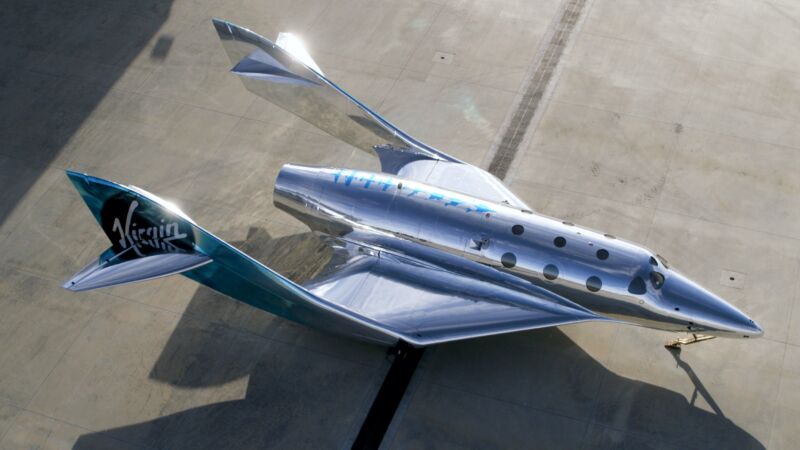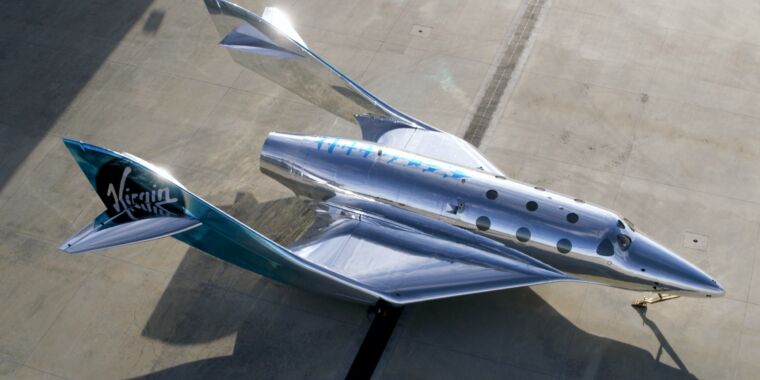
Virgin Galactic
Space tourism company Virgin Galactic released its third-quarter financial results on Thursday. As one might imagine of a spaceflight company that has not flown since June 2021, the financials are pretty disastrous. The company reported revenue of less than $1 million against losses of more than $146 million.
After a long period of downtime, Virgin Galactic officials said the company is close to completing “modifications” of its VMS Eve carrier aircraft and VSS Unity spacecraft. The company expects to complete a glide flight of Unity, which is released from Eve at altitude, in early 2023. After that point, the company will conduct a powered test flight, likely with its own employees on board, before a research flight for the Italian Air Force.
And after that, Virgin Galactic CEO Michael Colglazier said, the company remains on track to begin flying commercial passengers—people who bought their seats, some more than a decade ago—in the second quarter of 2023. As with most schedules in spaceflight, that timeline seems pretty optimistic.
Use your imagination
This is all well and good, but the return of VSS Unity will not bring Virgin Galactic close to profitability. At an optimal cadence, the company believes it can fly Eve and Unity once a month. This would still leave the company hundreds of millions of dollars in the red on an annual basis.
For this reason, the company has always been betting its future on iterations of its spaceship capable of higher flight rates. The ultimate goal is a “Delta” class of spaceship with a turnaround time of one week. With a fleet of Delta ships, Colglazier has told investors, the company can meet a profitable flight rate of 400 missions a year. But the Delta ships are unlikely to be ready for test flights before at least 2025, and commercial service would not begin until a year after that.
Although the company says it has “cash and cash equivalents and marketable securities of $1.1 billion” on hand, with an annual burn rate approaching half a billion dollars, there is a limit to its financial wherewithal. To help fill this gulf, Virgin introduced the sleek, silvery VSS Imagine in March 2021, an improvement over Unity with a higher anticipated flight cadence of twice per month and lower costs. It was supposed to begin glide flights in the summer of 2021.
Fast forward to Thursday, some 20 months later. VSS Imagine has yet to fly any tests. Rather, Colglazier said during a teleconference with investors, “We’re reassessing Imagine‘s schedule. I can say that we will not be in 2023 for commercial flights with Imagine.”
Asked about the reasons for this delay, Colglazier explained that the company has a limited pool of experienced engineers who are familiar with Virgin’s early design work on VSS Unity.








